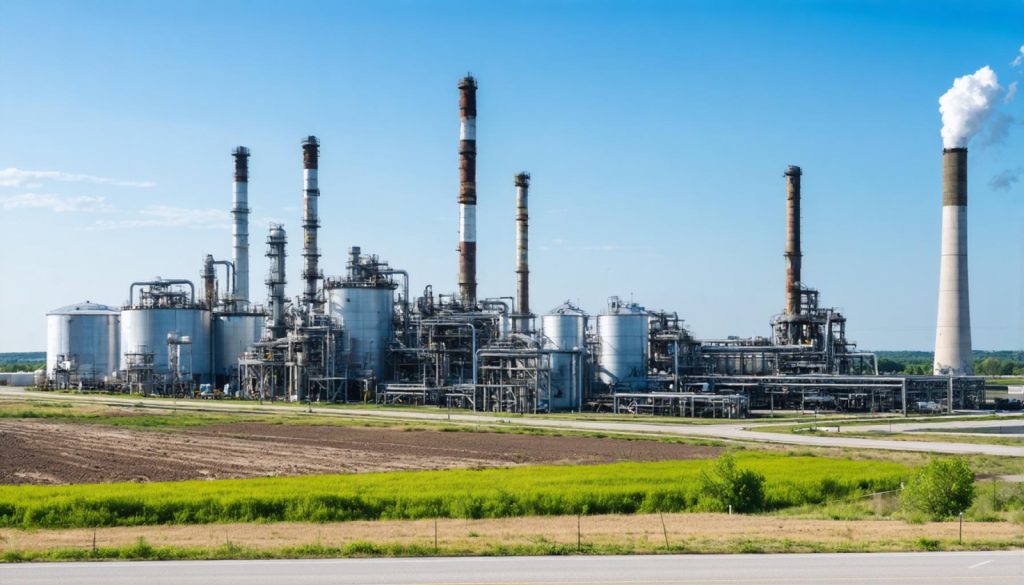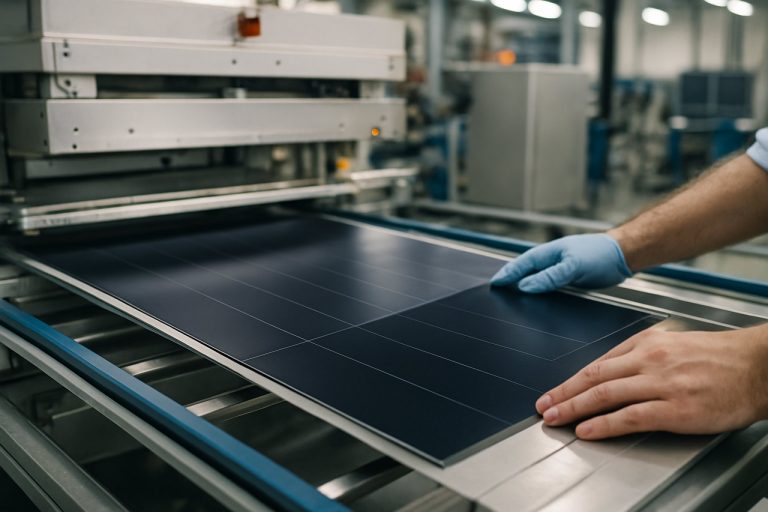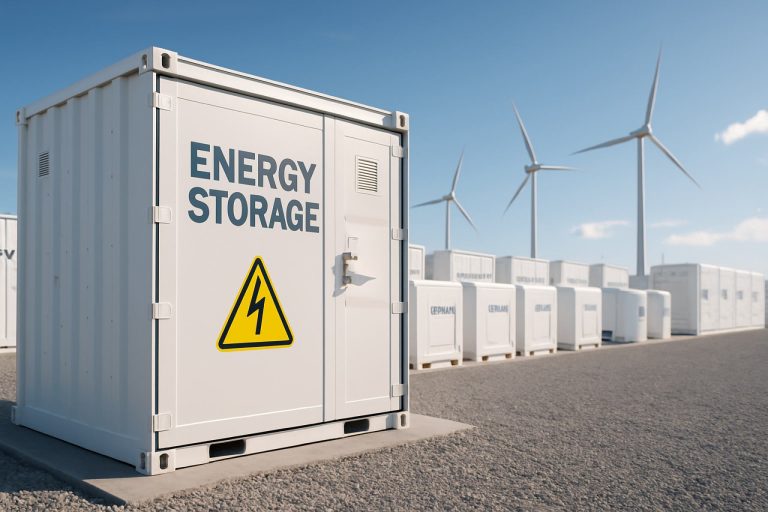
- Missouri is poised for significant tech manufacturing job growth, potentially breaking into the nation’s top ten states in this industry in five years.
- The state’s competitive edge originates from its cost-effective environment, which benefits businesses and employees alike, fostering innovation and industrial expansion.
- A robust technology infrastructure is crucial, as current deficits could hinder progress; investments are essential to maintain momentum and enhance digital connectivity.
- Missouri’s strategic central location and talented workforce, bolstered by local higher education institutions, are essential to its tech manufacturing ambitions.
- Collaboration between educational institutions and tech firms is key to aligning workforce skills with industry demands, supporting the state’s transformation.
- Missouri is actively shaping its future by prioritizing innovation, advanced infrastructure, and a vibrant tech ecosystem.
Amidst the rolling hills and expansive plains of Missouri, an unexpected transformation is taking place that could catapult the state into the upper echelons of tech manufacturing job growth over the next five years. A recent extensive analysis conducted by the Missouri Chamber Foundation thrust Missouri into the spotlight, noting it as a prime contender to join the nation’s top ten states in this burgeoning industry.
Missouri’s allure lies in its cost-effective environment that beckons tech companies with promises of economic efficiency. The equation is simple yet powerful: businesses can thrive with reduced overhead while employees enjoy a reasonable cost of living. This dual advantage creates a fertile ground for innovation and industrial expansion, paving the way for a dynamic economic future.
However, the journey towards this techno-utopia is not without its hurdles. A pressing concern looms—Missouri’s technological backbone in certain areas requires significant upgrades. The current, uneven technology infrastructure could impede the pace of progress, stifling the very momentum the state is eager to harness. This technological blind spot is a critical factor that policymakers and industry leaders are keen to address. By investing in robust infrastructure, Missouri aims to reinforce its foundations, ensuring that its aspirations are not derailed by inadequate digital connectivity.
Amidst these challenges, opportunities abound. The state is ideally positioned to capitalize on a rich tapestry of assets, including its central geographic location and a burgeoning talent pool nurtured by its higher education institutions. Universities and colleges are becoming vital incubators for the skills and expertise required in tech manufacturing, bridging the gap between academic prowess and industry needs. This harmonious collaboration between educational bodies and tech firms is cultivating a workforce finely tuned to the demands of modern manufacturing.
The face of Missouri is evolving, with small towns and big cities alike finding new identities in the digital age. The whispers of change are now loud and clear, echoing through the corridors of state development committees and boardrooms of tech giants, painting a picture of a promising pilgrimage from traditional manufacturing to high-tech dominion.
As Missouri stands on the cusp of a transformative era, its mission is clear—embrace innovation, incorporate advanced technology infrastructure, and nourish a competitive tech ecosystem. The message reverberates with clarity: Missouri is not just preparing for the future—it is actively creating it.
How Missouri is Set to Become a Tech Manufacturing Powerhouse
Missouri’s Path to Tech Manufacturing Leadership
Missouri is emerging as a significant player in the tech manufacturing industry, poised to make substantial strides over the next five years. Thanks to a favorable economic environment, Missouri provides a cost-effective base for tech companies aiming to optimize operations. The state offers a two-fold advantage: businesses can reduce overhead costs while employees benefit from a lower cost of living. This synergy sets the stage for a burgeoning tech manufacturing sector.
However, this rapid transformation is accompanied by challenges. Missouri’s existing technology infrastructure is uneven, potentially hindering its growth prospects. Without strategic investment in upgrading this infrastructure, Missouri’s tech ambitions could face significant obstacles.
Key Insights and Predictions
1. Infrastructure Investments: Missouri is focusing on enhancing its digital infrastructure. Robust internet connectivity is vital for supporting the advanced technologies involved in tech manufacturing. Policymakers are prioritizing investments in broadband and other digital supports to address this critical bottleneck.
2. Educational Alliances: Missouri’s universities and colleges are playing a pivotal role by aligning their curricula with industry needs. Institutions like the University of Missouri and Washington University are offering tech-oriented programs to create a skilled workforce ready for tech manufacturing demands. This education-industry partnership is a cornerstone for sustainable growth in the sector.
3. Geographic and Economic Advantages: Missouri’s central location gives it a logistical edge, facilitating efficient distribution and connectivity across the U.S. This geographic advantage, combined with economic incentives, makes it an attractive hub for tech companies.
Real-World Use Cases
– Tech Manufacturing Hubs: Cities like St. Louis and Kansas City are witnessing an influx of tech startups and established companies setting up manufacturing facilities.
– Rural Technological Advancements: Small towns are also evolving, with an increasing number of tech companies exploring these areas for expansions, attracted by lower operating costs.
Market Forecast and Industry Trends
According to market analysis, Missouri could achieve a top-ten ranking in tech manufacturing by 2028 if current trends continue. The state’s proactive measures, such as tax incentives for tech companies and investments in STEM (Science, Technology, Engineering, and Math) education, are likely to accelerate this growth.
Pros and Cons Overview
Pros:
– Lower cost of living attracts talent
– Economic incentives for tech firms
– Strong educational support
Cons:
– Infrastructure development lag
– Potential urban-rural divide in tech adoption
– Need for continual workforce training to keep pace with technological advancements
Actionable Recommendations
– For Businesses: Explore expansion opportunities in Missouri, considering its economic advantages and untapped geographic potential.
– For Policymakers: Continue to prioritize infrastructure enhancements and public-private partnerships to foster a conducive environment for tech companies.
– For Educators: Strengthen programs that bridge the gap between academia and industry, offering internships and real-world applications in tech fields.
For more information about Missouri’s economic and technological development, visit the [Missouri Chamber of Commerce and Industry](https://mochamber.com).
By building on these strategies, Missouri can successfully navigate its path to becoming a leader in tech manufacturing, ensuring a dynamic and prosperous future for the state.



